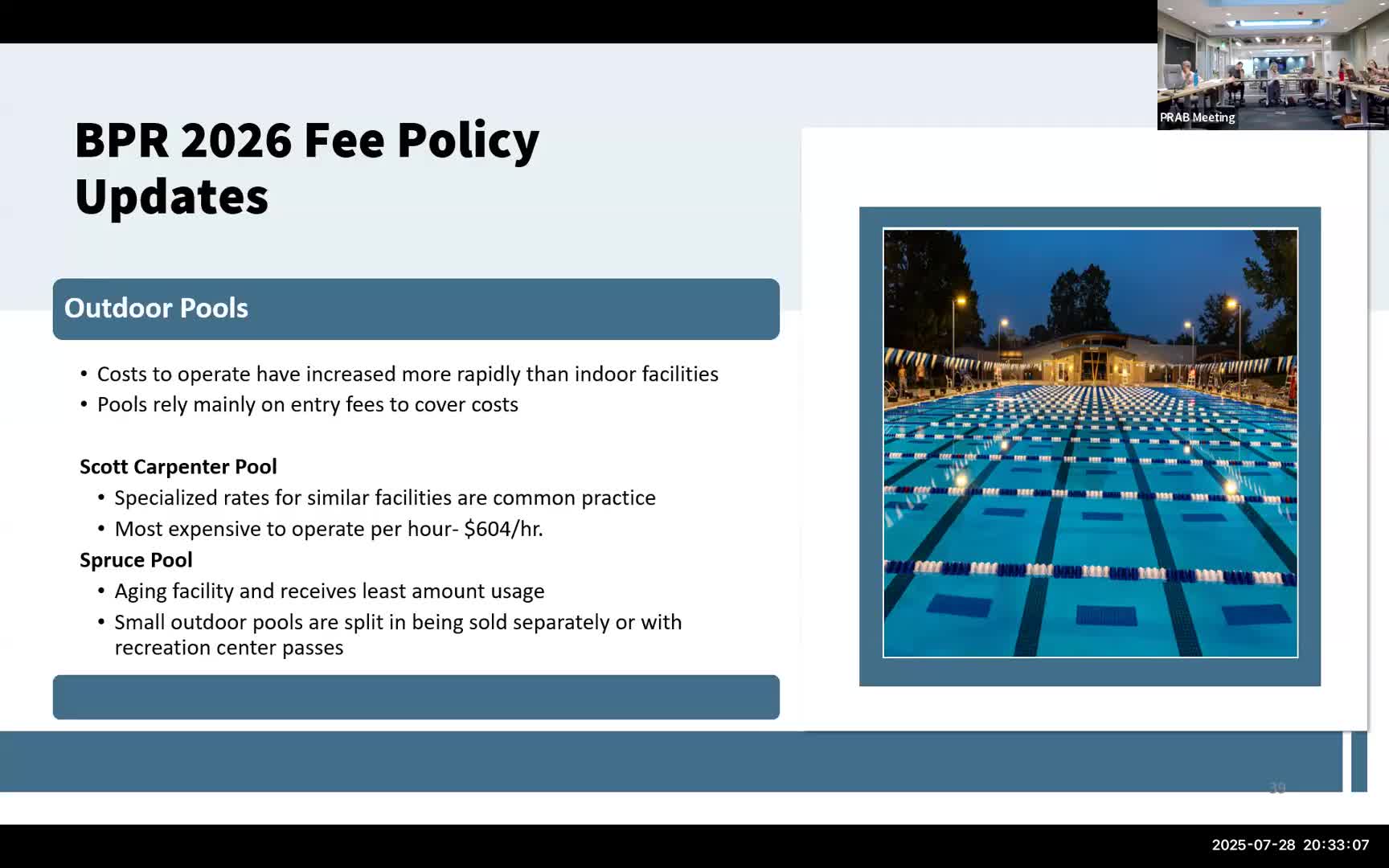City Reviews Boulder Reservoir Access Fees Amid Aging Pool Concerns
August 02, 2025 | Boulder, Boulder County, Colorado
This article was created by AI summarizing key points discussed. AI makes mistakes, so for full details and context, please refer to the video of the full meeting. Please report any errors so we can fix them. Report an error »

Boulder City’s Parks and Recreation Board is taking significant steps to address operational challenges and improve access to local recreational facilities, as discussed in their recent meeting on August 2, 2025. A key focus was the high operational costs associated with Scott Carpenter Pool, which requires approximately 24 aquatic staff members per hour and incurs monthly chemical expenses of around $15,000. The board is exploring ways to manage these costs while ensuring the facility remains accessible to the community.
Another topic of discussion was the future of Spruce Pool. Board members are considering whether to package it with outdoor pool offerings or keep it as a standalone facility. The aging infrastructure of Spruce Pool, built in 1963, raises concerns about its long-term viability. Recent investments have been made to upgrade essential equipment, but the board acknowledges that further evaluations will be necessary to determine the best path forward.
The Boulder Reservoir also came under scrutiny, with discussions centered on access fees. Currently, 79% of visitors pay a daily drop-in fee rather than opting for a membership. The board is contemplating various pricing strategies, including a potential per-car entry fee, to enhance revenue while ensuring public access. The goal is to achieve 100% cost recovery for the reservoir, which is crucial for its sustainability.
Looking ahead, the board plans to present comprehensive recommendations regarding membership structures and entry fees for all outdoor facilities in their next meeting. This initiative aims to align pricing with market conditions and operational costs, ensuring that Boulder’s recreational offerings remain both accessible and financially viable.
As the board continues to engage with the community, they emphasize the importance of informed decision-making regarding fees and access. The upcoming discussions will be pivotal in shaping the future of Boulder’s parks and recreation facilities, ensuring they meet the needs of residents while maintaining fiscal responsibility.
Another topic of discussion was the future of Spruce Pool. Board members are considering whether to package it with outdoor pool offerings or keep it as a standalone facility. The aging infrastructure of Spruce Pool, built in 1963, raises concerns about its long-term viability. Recent investments have been made to upgrade essential equipment, but the board acknowledges that further evaluations will be necessary to determine the best path forward.
The Boulder Reservoir also came under scrutiny, with discussions centered on access fees. Currently, 79% of visitors pay a daily drop-in fee rather than opting for a membership. The board is contemplating various pricing strategies, including a potential per-car entry fee, to enhance revenue while ensuring public access. The goal is to achieve 100% cost recovery for the reservoir, which is crucial for its sustainability.
Looking ahead, the board plans to present comprehensive recommendations regarding membership structures and entry fees for all outdoor facilities in their next meeting. This initiative aims to align pricing with market conditions and operational costs, ensuring that Boulder’s recreational offerings remain both accessible and financially viable.
As the board continues to engage with the community, they emphasize the importance of informed decision-making regarding fees and access. The upcoming discussions will be pivotal in shaping the future of Boulder’s parks and recreation facilities, ensuring they meet the needs of residents while maintaining fiscal responsibility.
View full meeting
This article is based on a recent meeting—watch the full video and explore the complete transcript for deeper insights into the discussion.
View full meeting
